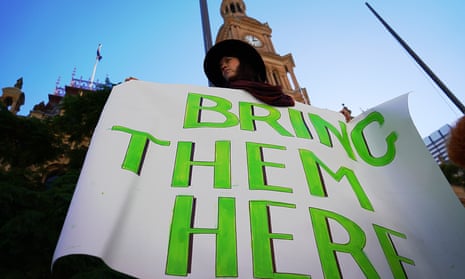A man feels constantly nauseous, is rapidly losing weight, and complains incessantly of abdominal pain. He has had a battery of normal investigations and now, his doctors wonder if it could be cancer.
The patient is young. I am anxious. No youth should have to confront a cancer diagnosis. I enter the room to find him curled up in bed, looking morose. His equally young friend hovers solicitously. He tells me his friend speaks little English, but I don’t need language to know that the patient is unwell and dehydrated. His eyes are dull but more than that, they look sad in some inexplicable way. He has a flat demeanour, as if he has given up on something. On what? On life, before age 25?
In phrases and gestures he explains that his tummy twists a lot. The twisting saps his energy but the doctors can’t find anything wrong.
“Please, doctor, can I say something?” The friend is clearly desperate to talk, looking thin and malnourished himself.
“He has this worm.”
The pictures he shows me on his phone are enough to twist my insides.
“Many people from Nauru have it.”
Nauru is the Pacific island on which the Australian government houses asylum seekers deemed to be illegal entrants.
“How do you know what happens on Nauru?”
“We share these things on our chat group.”
Only then does the truth dawn on me.
“You mean, all of you who used to live on Nauru?’
“Yes.” He averts his eyes as if avoid judgement.
I am stuck for words but suddenly, it all makes sense. The patient’s curious resignation, the friend’s desperation, the photos, the chat group, the pleading voice, the palpable panic at the prospect of again being dismissed.
My patient clutches his abdomen as tears fall down his face.
“You know, a worm infection makes sense,” I say lightly.
The friend’s shoulders relax. “You will give him medicine?”
“I’m going to call the infection experts right now,” I promise.
“Be brave, you won’t die. I told you they’ll help,” the friend whispers.
It will be the most moving and most troubling encounter of my day.
This week, I have found myself thinking of that young man, trauma and defeat writ large on his face. I wish I could have asked him more about Nauru and how he was managing in the community on a bridging visa that prolonged the uncertainty of his fate. Did he have pain relief? Did he have enough to eat? Did he talk to his family? Who was helping him with the legal case? But truth be told, a feeling of impotence came over me as I met one youth from Nauru and realized that he was emblematic of what we complacently term “the refugee situation”.
At my hospital, located in the multicultural heart of Melbourne, I had met enough asylum seekers and refugees who had once been in detention or in abject camps to know that they had a uniform tale to tell – of longing, destitution and desperation interspersed with bursts of relief at the compassion and humanity shown by strangers.
As a fellow human being, I longed to gather him in an embrace and confess how disturbed many Australians felt by their government’s policy towards people like him. I wished then that I had the power to alleviate his trauma and write him a new future, one imbued with hope and improvement and promise.
But realistically, as I paced outside his room, I thought that maybe if I could stop the pangs in his stomach and he began eating again, it would resurrect some of the resilience that had brought him so far. I couldn’t change government policy, but I could get him an anti-parasitic.
There is growing community outrage and distress at the Australian government’s policy of holding asylums seekers and refugees on Manus Island and Nauru without allowing them due process under international convention. Much has been written about the stain on the national conscience as institutions including the United Nations and Medicines San Frontier voice their strongest criticism of the punitive policy that demoralises people, precipitates mental illness and drives sufferers to desperate acts of self-harm.
Amidst this chorus of voices, in the same week as prominent government ministers voted for a motion proclaiming “it’s okay to be white”, nearly 6,000 medical professionals threw their weight behind a letter to the prime minister urging him to act to resolve what is not only a political crisis but a medical emergency.
The professionals hail from all fields of medicine, showing that surgeons, psychiatrists, anaesthetists, midwives and medical students are all aghast at the treatment of men, women, children and families torn asunder by a government’s obstinate insistence that not one of them will ever be allowed to set foot in Australia.
As everyone knows, getting six doctors to agree on anything is impossible, so what prompts 6000 of them to speak in one voice?
I think the protest arises from the professional experience that it is possible to mitigate the existential suffering that comes from chronic uncertainty and relentless persecution. That it is possible to prevent a fate where a human being seeking protection believes that the best way to safety is to commit suicide. That not every doctor needs to go to Manus Island and Nauru to be affected by the plight of its detainees – after all, we absorb lessons from our “regular” patients who face all manner of grief, anxiety and uncertainty.
Doctors know that the majority of general practice consultations have a mental health component. We note the impact of neglect, abandonment and harassment on the well-being of people.
We hear how our elderly pine for visitors and watch the damage done to children brought up in an environment of fear. We see how any illness is magnified when early symptoms are ignored and how the most important component of a therapeutic relationship is trust.
Multiply all the problems that our “regular” patients encounter in a first-world country, subtract all the support systems, empathy and compassion, and what do you get?
An asylum seeker who thinks that the outcome of a worm infection could only be death. A mute child. A depressed father. A suicidal mother. And thousands upon thousands of doctors in moral distress, their conscience pricked by a duty of care even as they grapple with the reality that to speak up is to court trouble.
Needless to say, doctors are not isolated in their outrage – they are simply part of the rising tide of anger and condemnation. Eventually, the politicians will be forced to listen, not because of who is doing the protesting but because they will be haunted by story after story of our fellow human beings who deserve better.
These stories won’t go away by contrived concern. They won’t go away by firing doctors and nurses. They will go away when they are truly a thing of the past and our politicians have the courage and the integrity to admit that they got it wrong.
Ranjana Srivastava is is an oncologist and Guardian Australia columnist. She the author of What It Takes to Be A Doctor.

